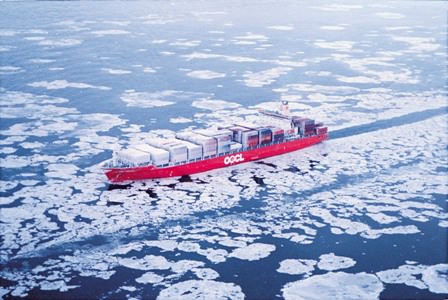A key step on the way to a mandatory Polar Code for ships operating in Arctic and Antarctic waters has been reached with the approval by the Marine Environment Protection Committee (MEPC) of the International Maritime Organization (IMO) of the environmental provisions in the draft International Code for Ships Operating in Polar Waters (the Polar Code), together with associated draft amendments to the International Convention for the Prevention of Pollution from Ships (MARPOL), to make the Code mandatory.
Following this approval, the MEPC will consider the Code and the draft amendments for adoption at its next session, in May 2015. Once adopted, the Polar Code and MARPOL amendments could enter into force on 1 January 2017.
Traffic volumes on the North Sea Route, which takes ships over Russia between Europe and Asia, rose last year, with 71 transiting the route in 2013, up from 46 in 2012. The trip is nearly 10 days shorter than the traditional westbound route through the Suez Canal but involves traversing treacherous ice fields and battling frigid cold and ever-changing weather elements.
Warming oceans have been shrinking Arctic ice patches each year, widening the path for ships to take the shortcut. The route has its shortcomings, however, as it lacks navigational aids and reliable communications. There are also limitations in mapping and coordinating search-and-rescue missions.
Ships in the polar regions operate under the same regulations as they would in the sunny and pleasant Mediterranean, but the IMO has been drafting the Polar Code for several years, with the first discussions taking place nearly five years ago.
The IMO did not release the document, but said the Polar Code tackles emissions and pollution, and also recommends ship operators refrain from transporting oil or fuel in the Arctic or Antarctic, as it represents a risk in the volatile waters.
The code also covers a full range of ship, equipment design and construction — such as ice-strengthened hulls — along with operational training, search and rescue, and environmental protection. Parts of the code are already approved, but the amendments and environmental provisions to the MEPC for approval and adoption, which would in turn make the code.
Agencies/Canadajournal

 Canada Journal – News of the World Articles and videos to bring you the biggest Canadian news stories from across the country every day
Canada Journal – News of the World Articles and videos to bring you the biggest Canadian news stories from across the country every day

